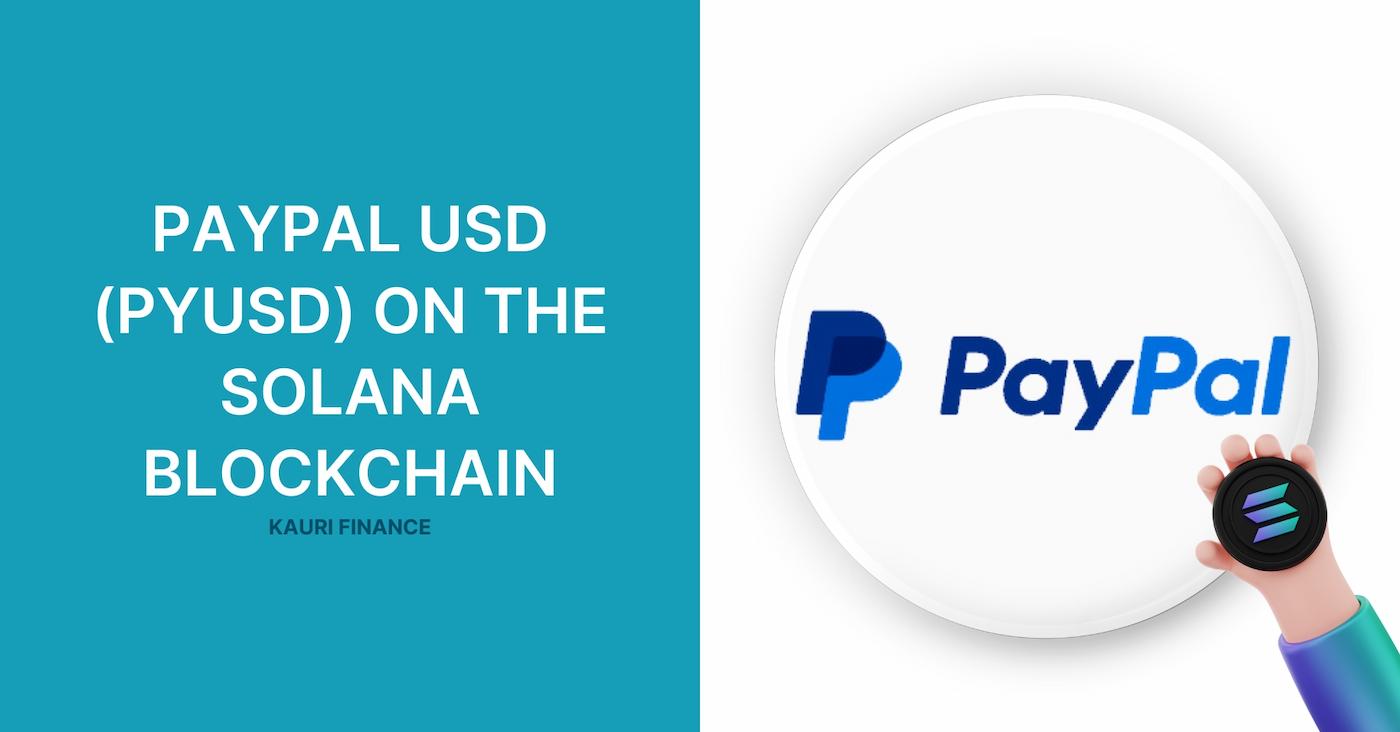
Building with PayPal USD (PYUSD) on the Solana Blockchain

Stablecoins have become a pivotal part of the cryptocurrency landscape, offering the volatility-free stability of fiat currencies with the technological advancements of blockchain. Among these innovations, PayPal USD (PYUSD) emerges as a significant addition, particularly in its integration with the Solana blockchain. This integration leverages Solana's renowned speed and scalability to enhance the utility of stablecoins in digital transactions and decentralized applications.
What is PYUSD?
PayPal USD (PYUSD) is a stablecoin issued by Paxos Trust Company on behalf of PayPal, designed to maintain a 1:1 peg with the U.S. dollar. Its integration into the blockchain sphere aims to merge PayPal's vast experience in digital payments with the immutable and efficient nature of blockchain technology. Initially launched on Ethereum, PYUSD expanded to Solana to capitalize on the blockchain's high throughput and low transaction costs. This strategic move is intended to facilitate broader adoption and utility across various digital platforms, providing a stable, scalable, and secure medium of exchange for users worldwide.
Advantages of Using PYUSD on Solana
- Speed and Cost-Effectiveness: Solana's architecture is designed for high speed and low transaction costs, making it an ideal platform for deploying stablecoins like PYUSD. With block times of approximately 400 milliseconds and the ability to process thousands of transactions per second, Solana ensures that operations involving PYUSD are not only swift but also incredibly cost-efficient. This efficiency is crucial for developers and businesses that require a reliable and scalable blockchain solution.
- Global Accessibility and Instant Settlements: Solana's network facilitates near-instantaneous transaction settlements, making PYUSD a practical choice for global financial transactions. Whether it's cross-border payments or microtransactions, PYUSD on Solana can handle large volumes of transactions without the latency issues commonly associated with traditional banking systems. This global reach, combined with the blockchain's inherent security and decentralization, makes PYUSD a powerful tool for worldwide commerce.
Technical Aspects of Building with PYUSD
- Getting Started with PYUSD on Solana: Developers interested in utilizing PYUSD in their projects can start by accessing test tokens from the Solana Devnet faucet. This initial step allows developers to experiment and test functionalities without incurring real-world costs. Access to comprehensive developer documentation and community support further facilitates the integration process, ensuring developers can leverage PYUSD's capabilities to the fullest.
- Integration Points of PYUSD: Integrating PYUSD into applications requires understanding its core components on Solana:
- Mint Address: The unique identifier for PYUSD on Solana is crucial for developers as it enables the specific targeting of this token within their applications. This address is used whenever transactions or smart contracts involve PYUSD, ensuring that the right token is being manipulated within the ecosystem.
- Token Extensions: PYUSD utilizes Solana's token extensions to enhance its functionality. These extensions include features like confidential transfers, which provide privacy options for transactions while maintaining compliance with regulatory standards. Transfer hooks and memo fields are other extensions that enable custom logic and additional data embedding in transactions, respectively. These features allow developers to build more sophisticated, efficient, and compliant financial applications.
By understanding and utilizing these technical aspects, developers can effectively integrate PYUSD into their Solana-based applications, harnessing the stablecoin's benefits for a wide range of use cases from microtransactions to large-scale financial operations.
Step-by-Step Guide to Building with PYUSD
Step 1: Acquiring PYUSD
Developers and users can acquire PayPal USD (PYUSD) through several avenues to start building or transacting on the Solana network:
- PayPal and Venomo: Users can directly buy and hold PYUSD using their PayPal or Venmo accounts, making it accessible to a broad audience familiar with these platforms.
- Cryptocurrency Exchanges: PYUSD is available for exchange on major cryptocurrency platforms like Crypto.com, where users can trade other cryptocurrencies for PYUSD.
- Solana Devnet Faucet: For developers, PYUSD is available on the Solana Devnet. This allows for testing and development without the need for real funds, providing a sandbox environment for experimentation.
Step 2: Understanding and Using the PYUSD Mint Address
The mint address uniquely identifies PYUSD on the Solana blockchain. Developers need to integrate this address into their applications to handle PYUSD transactions:
- Mint Address: 2b1kV6DkPAnxd5ixfnxCpjxmKwqjjaYmCZfHsFu24GXo
Developers can use tools like the Solana Explorer to view transactions and balances associated with this mint address, aiding in debugging and verification processes.
Step 3: Integrating PYUSD into Applications
Leveraging Solana’s token extensions, developers can enhance PYUSD’s functionality within their applications:
- Confidential Transfers: This feature allows for privacy-preserving transactions, essential for businesses requiring discretion.
- Transfer Hooks: Developers can implement custom logic that executes during token transfers, useful for automated compliance checks or adding business-specific functionalities.
- Memo Fields: These allow for the inclusion of additional information with transactions, facilitating better record-keeping and user communication.
Use Cases for PYUSD
PYUSD on Solana opens up a myriad of use cases across various sectors due to its stability and efficiency:
- Cross-Border P2P Payments: Individuals can send PYUSD to anyone globally almost instantaneously and at minimal cost, making it an ideal solution for remittances and general peer-to-peer transactions.
- Business-to-Business (B2B) Transfers: Companies can use PYUSD for quick, reliable, and traceable payments to partners and suppliers anywhere in the world, streamlining international commerce.
- Microtransactions: The low transaction fees and high throughput of Solana make PYUSD perfect for microtransactions, such as paying for digital content or small online services.
- Global Payouts: Organizations can utilize PYUSD for global payouts, simplifying payroll and disbursements in multiple jurisdictions without the need to manage various currencies.
Example Scenarios:
- A gaming platform utilizes PYUSD to facilitate in-game purchases and reward distributions across different countries, enhancing the user experience by providing fast and secure transactions.
- A freelance platform offers PYUSD as a payment option, allowing freelancers and clients to transact seamlessly across borders without worrying about exchange rate fluctuations or delays.
Conclusion
Building with PayPal USD (PYUSD) on the Solana blockchain presents a transformative opportunity for both developers and users. By harnessing the speed, cost-effectiveness, and global reach of Solana, PYUSD facilitates a wide array of financial activities from microtransactions to large-scale global payouts, all while maintaining near-instant settlement times and minimal fees.
Developers are encouraged to delve into the possibilities that PYUSD offers within the Solana ecosystem. With its integration into Solana’s robust infrastructure, PYUSD not only simplifies transactions but also enhances them with advanced features such as confidential transfers and programmable control, courtesy of Solana’s token extensions.
For those looking to expand their skills or to start building with PYUSD, Kauri Academy provides a wealth of resources. From in-depth tutorials and development guides to community support forums, Kauri Academy is equipped to assist developers at every step of their journey. Embrace the potential of PYUSD on Solana and contribute to the evolution of digital finance by creating solutions that leverage this powerful stablecoin’s capabilities.
